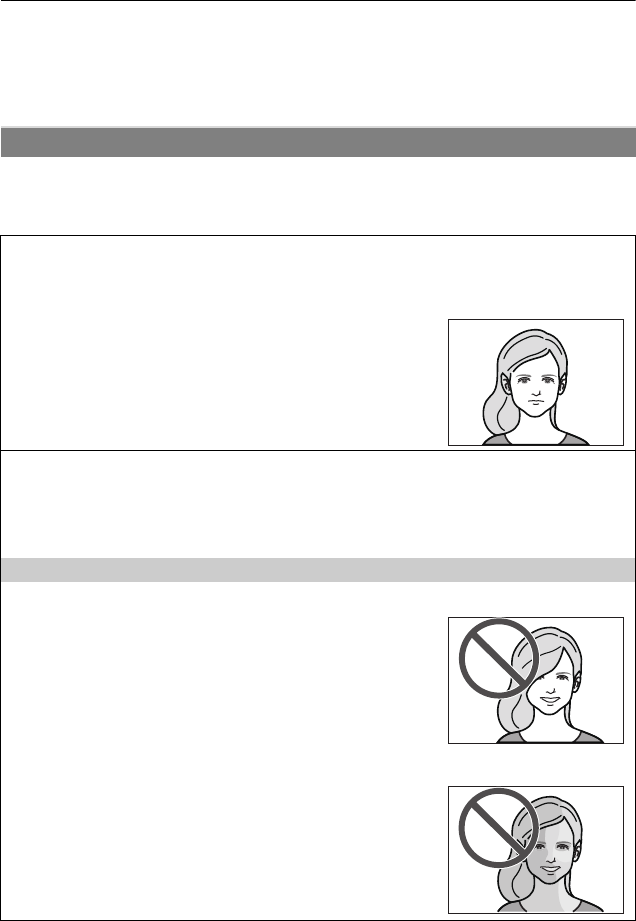
VQT2G44
106
Advanced (Recording pictures)
• Even when face recognition information has been registered, pictures taken with [NAME] set to
[OFF] will not be categorized by face recognition in [CATEGORY PLAY].
• Even when face recognition information is changed (P108), face recognition information for the
pictures already taken will not be changed.
For instance, if the name is changed, pictures recorded before the change will not be
categorized by face recognition in [CATEGORY PLAY].
•
To change the name information of the pictures taken, perform the [REPLACE] in [FACE REC EDIT] (P145).
You can register information such as names and birthdays for face images of up to 6 people.
Registration can be facilitated by taking multiple face images of each person. (up to 3
pictures/registration)
Face Settings
∫ Point of recording when registering the face images
• Face front with eyes open and mouth closed, making sure the
outline of the face, the eyes, or the eyebrows are not covered
with the hair when registering.
• Make sure there is no extreme shading on the face when
registering. (Flash will not flash during registration.)
[Good example for
registering]
∫ When it is not recognising during recording
• Register the face of same person indoors and outdoors, or with different expressions or
angles. (P108)
• Additionally register at the location of recording.
• Changing the [SENSITIVITY] setting (P110)
• When a person who is registered is not recognized, correct by re-registering.
Example of faces that are hard to recognize
Face Recognition may not be possible or may not recognize
faces correctly even for registered faces in the following
instances, depending on the facial expression and environment.
• Hair is covering the eyes or the eyebrows (A)
• The face is dark/the light is at an angle (B)
• The face is facing in angle or sideways
• The face is facing upward/downward
• The eyes are closed
• When the face is extremely bright or dark
• Hidden by sunglasses, glasses reflecting light, hair, hat, etc.
• When the face appears small on the screen
• The entire face is not in the screen
• When distinctive facial features have changed with age
•
When parents and children or siblings closely resemble one another
• Facial expression is very different
• When there is little contrast on the faces
• When there is rapid movement
• When the camera is shaking
• When digital zoom is used
A
B
DMC-GF1KPP-VQT2G44_eng.book 106 ページ 2009年8月17日 月曜日 午後1時19分


















